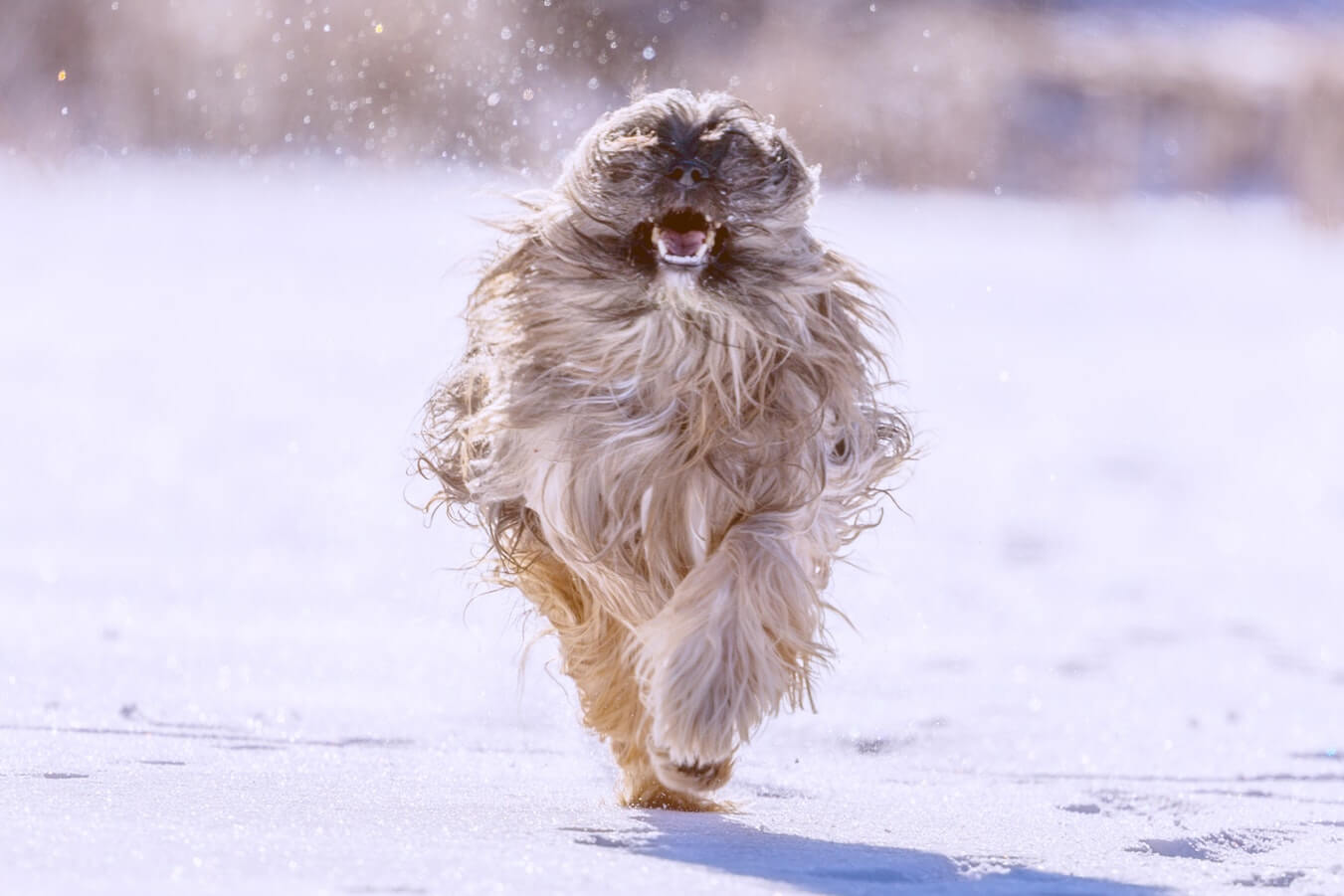
Have ever thought as to why we sneeze? Why is your dog sneezing? Sneezing can be defined as a forceful release of air from our lungs through the nose. Many people do wonder why dogs sneeze. Sneezing in dogs are viewed as a sign of sickness or unhealthy in dogs. However, this is not the case. Sneezing in dogs can be a tactic of keeping their body healthy.
Sneezing in dogs can be involuntary activity. Dogs do sneeze when they wake up. They can also sneeze when they are relaxing.
In this article, we have discussed some of the causes of sneezing in dogs. There are many reasons caused dogs to sneeze. It can be a sign of a respiratory disorder or disease in your dog. In case of abnormal sneezing consult your veterinarian.
Table of Contents
Primary causes of sneezing in dogs
Dog allergies
Dogs are allergic to some products or things just like inhuman. They can be allergic to dust, pollen, weeds among other things. Some breeds are also allergic to smoke from a cigarette. With these allergic agents, they will continuously sneeze. It is right for you to avoid exposing your dog to these agents. The use of antihistamines can also help in relieving symptoms of the allergies. Consult your veterinarians for further medication in case of allergies.
Sneezing due to foreign items
Repeated sneezing in dogs is a show that something new has evoked their nose. In some cases, the item may stick in their nose. Some of these items can be paper clips, dust, dead bugs among other foreign items. This may lead to violent sneezing in dogs. This may be accompanied by bleeding. At this state, you need the necessary assistance from your vet. They will sneeze while looking up. It should be understood that the situation will continue up to the time when the items are removed from the nose.
Sneezing due to teeth problems
Teeth problems affecting the dog can be the source of sneezing. This may not seem to be a reason, but it is. Tooth roots of dogs are next to the nasal cavity. When there is a problem within the tooth, it may ripen bouts of sneezing within the nostril. In this case, the tooth is supposed to be removed. If the problem can’t be solved, it will lead to sinuses and other issues in your dogs.
Infectious diseases
Repeated sneezing in dogs can be a result of infectious disease. A dog that is suffering from these diseases or those related to respiratory track does sneeze a lot. Some of this disease that increases sneezing in dogs include kennel cough, distemper, Nasal Aspergillus among others. Nasal Aspergillus is developed when there is direct contact with fungus to your dog’s nasal. The infections can be of short-term or chronic. The short-term infection lasts for a few days or a week. Your dog will sneeze for that period. With chronic, they go for an extended period. You should ask for medication from your vet and also understand the root cause of them.
Nasal Tumors
This cause is not such common. Intranasal tumors usually affect those dogs that are older. They can make your dog sneeze while obstructing their nasal pathways. Tumors continuously grow making your dog to sneeze slowly and later into repeated sneezing. With intranasal tumors, it is accompanied by various symptoms like bloody discharge in their nose. Sneeze begins as a slow process but grows. But you need to be keen on some of the dramatic change in sneezing with your dogs. With bloody noses dogs, take them to your vet. The vet will give an alternative process on how to treat your dog.
Your dog is excited
Dogs can sneeze because they are excited. With this, it does not mean that it is sick. The sneeze is from pure excitement and joy. Young dogs are prone to excitement as compared to older dogs. The excitement comes when you are playing with them, running or when you have a trip to a park. This type of sneezing is positive and has no relation to health issues.
Sneezing due to Parasites
Pesky parasites have an impact on dog sneezing. Presence of nasal mites or pneumonyssoides cranium causes the nasal sneeze. Nasal mites live in dog’s nose, and they are transmitted through touch with an affected dog. Severe affection brings about sneezing. They can lead to nosebleeds. Nasal mites are not common and cannot be identified unless there are repeated sneezing in your dog.
Rhinitis and sinusitis
This rare condition in which the interior nasal passages and becomes inflamed. With this sneezing will be due to inflammation. It will be noticed when the situation is at the peak. The cause of this inflammation can be due to fungal, dental disease or due to irritants. The typical symptoms that are accompanied by this are the loss of appetite and a running nose.
What to do at home due to sneezing
As we have seen sneezing is caused by various factors. It may start at a slow rate but increase as time goes by. Below are some of the tips to apply as a dog owner in your home.
Confine your dog. Have a separate room where you confine your pet. While in the room observe some of the behaviors of your dog. In this room, you could be able to know the source of sneezing.
Avoid excessive exercise. If your dog is repeatedly sneezing avoid excessively training or training. This involves preventing long walks, playing among others. Consult your vet for medication before resuming your dog training.
Conclusion
Both human and dogs do sneeze. Sneezing is typical and normal. On the other hand, extreme sneezing is not typical. It is good to seek assistance from your vet in case you suspect that your dog’s sneezing is not typical. You need to watch your dog. Some of the common characteristics that you need to look at discharge, swelling, bleeding, bleeding issues among other sighs. If you realize that your dog is suffering from them. Seek medication from your vet.
You May Also Interested In:
Share this:
- Click to share on Twitter (Opens in new window)
- Click to share on Facebook (Opens in new window)
- Click to share on Tumblr (Opens in new window)
- Click to share on Pinterest (Opens in new window)
- Click to share on Reddit (Opens in new window)
- Click to share on Telegram (Opens in new window)
- Click to share on WhatsApp (Opens in new window)
- Click to print (Opens in new window)
